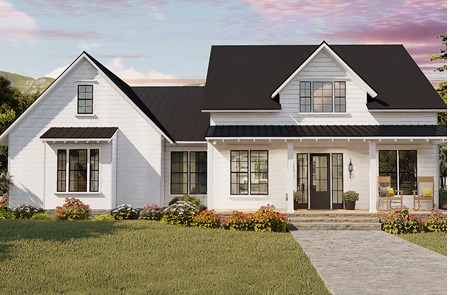Mayor Lori Lightfoot introduced an innovative ordinance to expand housing access to thousands of residents across Chicago by permitting accessory housing units, also known as additional dwelling units (ADU).
The ordinance would allow owners to add moderate-cost rental units in spaces such as attics, basements, and coach houses.
With thousands of officially unauthorized apartments already built and affordably rented in ethnic and gentrified neighborhoods alike, this writer has long wondered why ancillary dwelling units such as garden, attic, and over-the-garage coach house abodes are not allowed under Chicago’s current restrictive zoning.
A 1957 rewrite of the Chicago building and zoning codes “grandfathered” the then-existing dwelling units due to the after-effects of the 1930s Great Depression and the severe post-World War II 1940s housing shortages.
After the war, one Old Town three-flat was split into six rental apartments with a seventh unit in the basement – and that was legal – with residences renting for as little as $20 per month. Of course, most blue-collar tenants were earning $50 a week during that era, but those apartments were truly affordable housing by today’s standards.
Recommended for legalization by the Mayor’s Transition Committee and in the Department of Housing’s One Chicago five-year housing plan, ADUs should greatly increase the supply of available housing and create a financial boost for Chicago building owners and seniors who are struggling to pay sky-high real estate taxes.
In addition, by legalizing housing options that are already part of the fabric of the city’s neighborhoods, the ordinance likely will slow gentrification in fringe neighborhoods in the path of rapid redevelopment.
Developed in partnership by the Department of Housing, Department of Planning and Development, and Department of Buildings with input from an advisory group assembled by the Urban Land Institute’s Chicago chapter, the proposed zoning code changes would define new living spaces within attics and basements as conversion units and spaces in accessory structures as coach house units.
The code would also allow at least one ADU per building in all residential zoning districts. However, ADUs proposed for buildings in select single-family districts (RS1, RS2) would require a special-use permit from the Zoning Board of Appeals.
Existing ADUs that were constructed without zoning changes or building permits would be allowed to become compliant without penalty through a new permitting and inspection process.
Housing experts say it is likely that basement or so-called “garden apartments” will continue to be affordable because they usually are studios or one-bedroom units with limited square footage. Renters may have to deal with lack of light and relatively low seven-foot ceilings.
However, the rent usually is quite affordable, sometimes only $500 or $600 per month in some neighborhoods. Even in affluent neighborhoods such as Old Town and Logan Square, garden apartment rents typically are 25 to 30 percent less than above-grade units in the same building.
It is estimated that as many as 100,000 affordable garden apartments could be added to the city’s housing stock under the new innovative zoning. That would be the same as building 500 high-rises with 200 units in each.
Of course, every garden, attic, coach house, or over-the-garage living unit would have to meet requirements of the current Chicago Building Code, contain at least two exits, and have a kitchen and bathroom, along with proper air ventilation and heating.
Source:Loop North News




